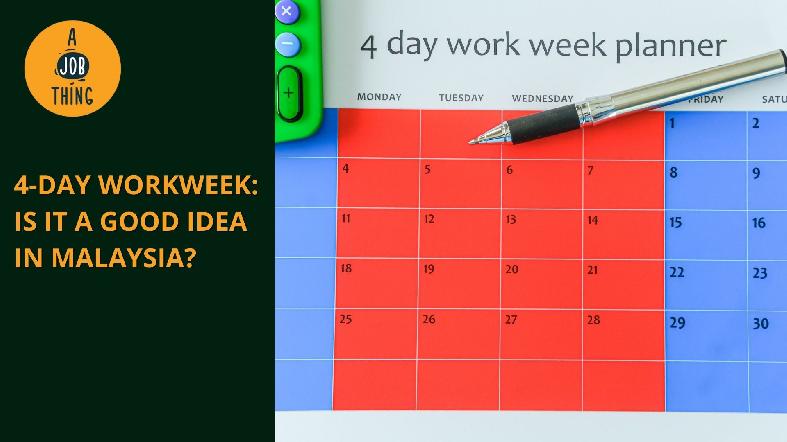
4-Day Workweek: Is It a Good Idea in Malaysia?
Are You Hiring?
Find candidates in 72 Hours with 5+ million talents in Maukerja Malaysia & Ricebowl using Job Ads.
Hire NowThe concept of a four-day workweek has been widely debated, but few organisations have implemented it as employers are concerned about employee productivity and pay.
However, the pandemic has brought attention to employees' need for a better work-life balance, re-igniting the debate. While most businesses are still sceptical about employees working fewer hours, what about compressed 4-day workweeks?
4-day workweeks in Southeast Asia?
Employees that work compressed workweeks often clock in the same number of hours each week, but on four days rather than the usual five. An employee will still work 40 hours per week (i.e. 10 hours per day) under this arrangement, but will receive three days off per week instead of the standard two.
Milieu Insight, a consumer research and analytics firm, has announced the findings of its "4-Day Workweek" survey, which included 6000 employed respondents from Southeast Asia.
The goal of the study is to learn about people's thoughts on shortened 4-day workweeks and some of the concerns that come with it.
Malaysians are less enthusiastic about a four-day workweek
According to the report, working five days a week is the norm in most Southeast Asian countries, except for Indonesia and Vietnam, where six-day workweeks are more frequent.
When asked how much they'd like compressed four-day workweeks adopted at their workplaces, at least seven out of ten in Southeast Asia indicated at least an eight on a 0 to 10 scale – this includes Vietnam (78%) and Indonesia, which is somewhat below the average at 69%. However, Malaysia is an outlier, with only 48% voting in favour.
Unnecessary?
Some are willing to take a pay cut, but most believe it is unnecessary.
When asked what percentage pay cut they would be ready to take to implement the work arrangement, the most common answer is '0% - it does not make sense to adjust salaries with this policy.' This is especially evident in Singapore and Thailand, where 73% and 61% of respondents chose this choice, respectively.
Surprisingly, just 24% of Vietnamese respondents chose this choice, and responses are more evenly distributed over the salary scale, with 19% able to tolerate a 20% pay loss.
Some want salary cuts, but better work-life balance is the most popular benefit
People anticipate a better work-life balance (67%) and more time to spend with their loved ones if work is compacted to four days (64%). However, more than half of respondents are concerned that this arrangement will reduce their pay, and 47% believe that extended 10-hour days will be demanding and tedious.
More seniors are concerned about team management
When comparing receptivity to the compressed 4-day workweek arrangement, there is little difference between seniors (managerial level and above) and juniors (below managerial level).
However, seniors are more concerned about 'difficult team management' (34% vs 27%) - the new arrangement may demand managers to maintain the same, if not higher, productivity levels.
The research is based on Milieu surveys conducted in December 2021 in Singapore, Thailand, Malaysia, Indonesia, the Philippines, and Vietnam with 500 seniors (managerial level and above) & 500 juniors (below managerial level).
Source: People Matters

